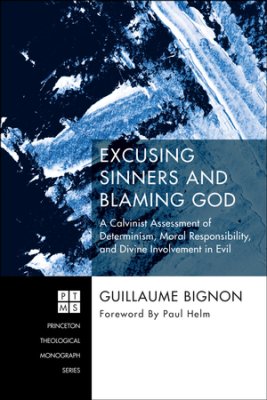Podcast: Play in new window | Download
Subscribe: Spotify | Email | RSS
 Does God’s unchangeable plan for his cosmos specify every last event that shall occur in it? Does he unilaterally ordain all that shall come to pass, including your sins? Is all that occurs exactly according to God’s secret will, though not in line with his revealed will? This view can be called “theological determinism,” and when it is added to some doctrines about election, grace, and salvation, it is often called “Calvinism.”
Does God’s unchangeable plan for his cosmos specify every last event that shall occur in it? Does he unilaterally ordain all that shall come to pass, including your sins? Is all that occurs exactly according to God’s secret will, though not in line with his revealed will? This view can be called “theological determinism,” and when it is added to some doctrines about election, grace, and salvation, it is often called “Calvinism.”
In this episode of the trinities podcast, the first part of my conversation with Dr. Guillaume Bignon, author of Excusing Sinners and Blaming God: A Calvinist Assessment of Determinism, Moral Responsibility, and Divine Involvement in Evil. This book is a sophisticated, argument-packed defense of Calvinism against two sorts of objections commonly given by non-Calvinists (aka “Arminians”): that it takes away our responsibility for our sins, and wrongly blames God. It draws on a lot of recent work in analytic philosophy and in analytic theology, and adds some formidable new arguments to the conversations.
Dr. Bignon discusses his conversation, his commitment to Calvinistic theology, and some differences among Calvinists concerning human freedom and “mystery.” Dr. Bignon then defines the important terms of these debates, such as “determinism,” “libertarianism,” and “compatibilism,” and of course “Calvinism.” We then discuss the famous passage in Romans 9-10 which Dr. Bignon considers to be the clearest teaching in scripture of Calvinist views on divine sovereignty and human responsibility – claims which in his view make sense only given compatibilism. I briefly challenge that reading of Romans 9, and he responds.
In part 2, next week, Dr. Bignon gives an overview of his many arguments in this book.
Links for this episode:
- Excusing Sinners and Blaming God: A Calvinist Assessment of Determinism, Moral Responsibility, and Divine Involvement in Evil
- @theoloGUI
- podcast 82 – Dr. Oliver Crisp on libertarian Calvinism and universalism
- podcast 81 – Dr. Oliver Crisp on the breadth of Reformed tradition
- Romans 9:1-10:13
- This week’s thinking music is “Histoire d’une truite” by Salmo.


Pingback: New and Upcoming Books (Quarter 1, 2018) – The Oneness Exchange
Comments are closed.